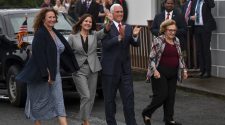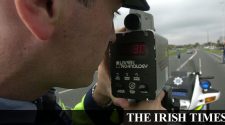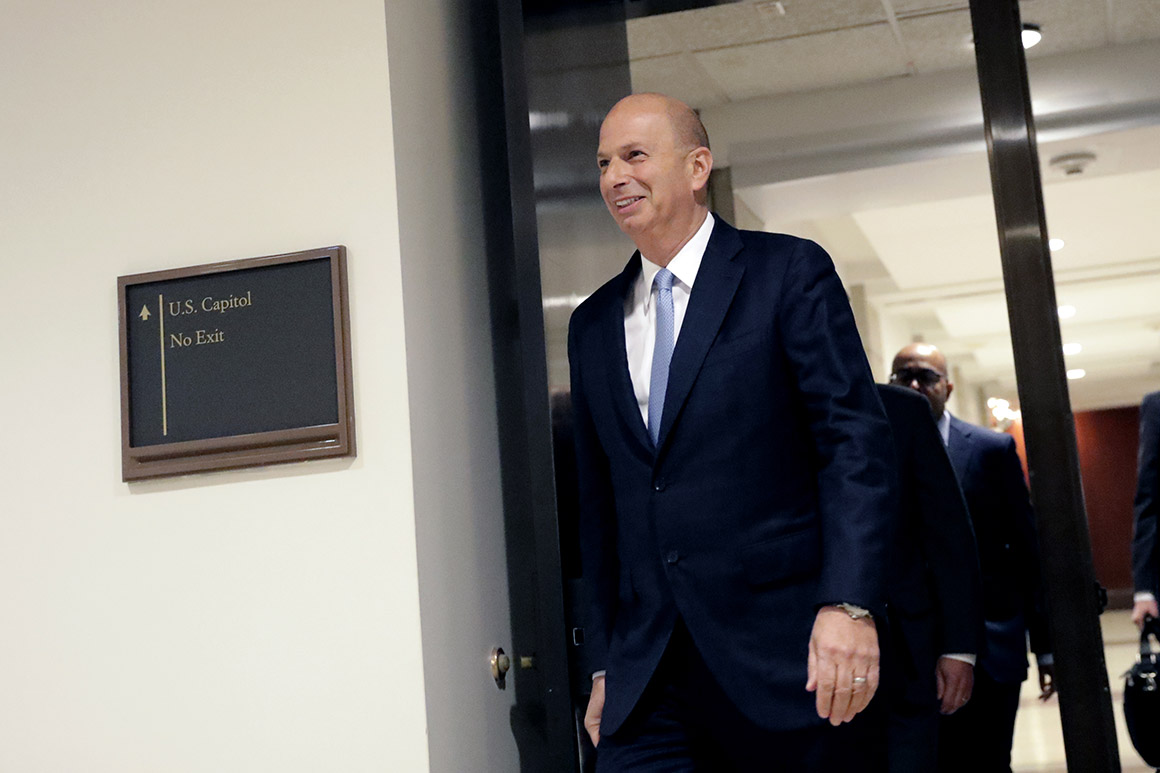He also said military assistance to Ukraine “should not have been delayed for any reason” — a rebuke of the president’s decision to put a hold on those funds earlier this year — but added that Trump repeatedly told him there was “no quid pro quo” involving the aid or an investigation of Trump’s political rivals.
Sondland’s testimony has the potential to be the most devastating yet for Trump and his defenders, who say he did not apply inappropriate pressure on Zelensky to investigate a 2020 rival. It was Sondland’s text messages denying the existence of a quid pro quo, obtained by Congress earlier this month, that Trump pointed to as proof he did nothing untoward.
Sondland now says he only claimed there was no quid pro quo because Trump repeatedly assured him of it in a direct phone call — regardless of whether it was true.
“And I recall the president was in a bad mood,” Sondland said in his opening statement.
Sondland’s testimony also underscores the outsized influence Giuliani has had on Trump’s foreign policy, even though the former New York City mayor is not a government official.
“It was apparent to all of us that the key to changing the president’s mind on Ukraine was Mr. Giuliani,” Sondland said.
Sondland ultimately defended his decision to speak with Giuliani, saying it was the “better alternative.”
“[B]ased on the president’s direction, we were faced with a choice: We could abandon the goal of a White House meeting for President Zelensky, which we all believed was crucial to strengthening U.S.-Ukrainian ties and furthering long-held U.S. foreign policy goals in the region; or we could do as President Trump directed and talk to Mr. Giuliani to address the president’s concerns,” Sondland said.
The House’s impeachment inquiry has centered on Trump’s July 25 phone call with Zelensky, during which Trump asked his counterpart for a “favor” involving an investigation of Biden. Democrats have pointed to the request as evidence that Trump abused the power of his office.
The inquiry also focuses on the decision to freeze assistance to Ukraine. House impeachment investigators are looking into whether Trump sought to use the withheld aid as leverage over Zelensky as the president sought probes into his political enemies.
Rep. Jackie Speier (D-Calif.) told reporters that she was not sure whether lawmakers can trust Sondland’s testimony, saying his opening statement was “a lot of CYA.”
In a letter to House investigators, Sondland’s attorneys said their client has ample documentation to back up his testimony, but that the White House and State Department are blocking him from sharing it, claiming it could implicate executive privilege and other confidentiality restrictions.
“[Sondland] strongly believes that disclosure will lead to a more fulsome and accurate inquiry into the matters at issue and will corroborate the testimony that he will give in key respects,” Sondland’s attorneys wrote in a Thursday letter. “However, the choice is not his to make, and so we must regretfully decline to produce the documents that the committees have requested from Ambassador Sondland.”
Sondland also offered a strong defense of the former U.S. ambassador to Ukraine, Marie Yovanovitch, who was ousted by Trump after a campaign by the president’s allies to recall her to Washington. In his opening statement, Sondland called her “an excellent diplomat with a deep command of Ukrainian internal dynamics, the U.S.-Ukraine relationship, and associated regional issues.”
Trump himself blasted Yovanovitch during his July 25 call Zelensky, and Yovanovitch testified to lawmakers last week that her removal was based on “unfounded and false claims by people with clearly questionable motives.”
Sondland’s testimony also underscores divisions within the upper ranks of the Trump administration over Ukraine. He said he was taken aback at testimony by Fiona Hill, Trump’s former top Russia aide, revealing that she and then-national security adviser John Bolton had criticized his involvement. Hill told congressional investigators that she met with a National Security Council lawyer twice over her concerns about Giuliani and Sondland.
Sondland defended his involvement, saying that Secretary of State Mike Pompeo had given a full-throated endorsement of his efforts.
“I understand that all my actions involving Ukraine had the blessing of Secretary Pompeo as my work was consistent with long-standing U.S. foreign policy objectives,” he said, “Indeed, very recently, Secretary Pompeo sent me a congratulatory note that I was doing great work, and he encouraged me to keep banging away.”
Sondland, who says he’s a “lifelong Republican,” noted he was confirmed on a voice vote in the Senate in 2018 and said he tried to operate in a nonpartisan manner in his diplomatic role.
He said he had previously worked with Biden on the former vice president’s anti-cancer initiative. Sondland was a major donor to Trump’s 2016 presidential campaign, and he contributed $1 million to Trump’s inaugural committee.
That Sondland was involved at all in Ukraine policy puzzled many in the administration, as the country is not a member of the European Union.
Sondland sought to counter his critics by arguing that Ukraine played an important role in his broader work as EU ambassador since he took his post.
“Ukraine is not a dirty word. Ukraine is a fragile democracy fighting against a brutal and unscrupulous Russian neighbor,” he said. “A strong Ukraine helps to uphold the norms that maintain stability and promote prosperity around the world.”
Pompeo initially blocked Sondland from testifying before the three House committees spearheading the impeachment inquiry. But after the House issued a subpoena for his testimony, Sondland decided to testify over the State Department’s objections.
The Trump administration has blocked or limited the testimony of other witnesses, too, as part of a larger effort to stonewall an impeachment inquiry the White House views as illegitimate.














